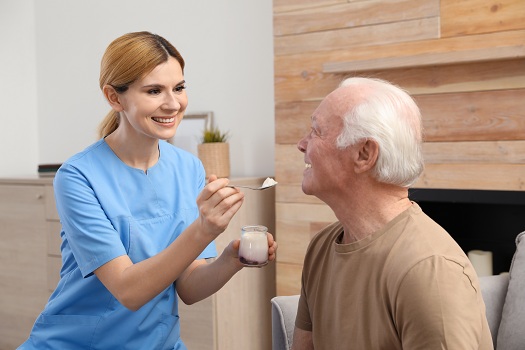
Parkinson's disease can be a challenging condition to manage, not just for the individuals diagnosed with it but also for their caregivers. As a caregiver for someone with Parkinson's, it's essential to have the right strategies in place to provide the best possible care and support. This comprehensive guide offers empowering strategies to help caregivers navigate the daily challenges of caring for a loved one with Parkinson's disease.
Understanding Parkinson's Disease
Before diving into the strategies for caregivers, it's important to have a basic understanding of Parkinson's disease. Parkinson's is a progressive neurological disorder that affects movement. It is characterized by symptoms such as tremors, stiffness, and difficulty with balance and coordination. As the disease progresses, individuals may also experience non-motor symptoms such as cognitive changes, mood disorders, and sleep disturbances.
Signs and Symptoms
- Tremors
- Bradykinesia (slowness of movement)
- Rigidity
- Postural instability
- Non-motor symptoms (e.g., depression, constipation, sleep problems)
Empowering Strategies for Parkinson's Caregivers
Educate Yourself
Knowledge is power when it comes to caregiving for someone with Parkinson's disease. Take the time to educate yourself about the condition, its symptoms, and progression. Understanding what to expect can help you anticipate changes in your loved one's condition and provide better care.
Build a Support System
Caring for a loved one with Parkinson's can be physically and emotionally demanding. It's important to build a strong support system to help you navigate the challenges of caregiving. This can include family members, friends, support groups, and healthcare professionals.
Encourage Independence
While it's natural to want to help your loved one with daily tasks, it's also important to encourage independence whenever possible. Allow them to do things on their own, even if it takes longer or is more challenging. This can help maintain their sense of autonomy and self-esteem.
Practice Self-Care
As a caregiver, it's easy to neglect your own needs when focusing on caring for someone else. However, self-care is crucial for maintaining your own physical and mental well-being. Make time for activities you enjoy, prioritize sleep and healthy eating, and seek support when needed.
Communicate Effectively
Open and honest communication is key to providing the best care for your loved one with Parkinson's. Make sure to listen to their needs and concerns, and communicate your own effectively. Discussing challenges and working together to find solutions can strengthen your relationship and improve the caregiving experience.
Practical Tips for Parkinson's Caregivers
Assistive Devices
There are various assistive devices available to help individuals with Parkinson's maintain their independence. These can include mobility aids, adaptive utensils, and devices to assist with dressing and grooming. Consult with healthcare professionals to determine the most suitable options for your loved one.
Exercise and Physical Therapy
Regular exercise and physical therapy can help individuals with Parkinson's improve their mobility, balance, and overall quality of life. Encourage your loved one to engage in physical activities that are safe and appropriate for their condition. Consider working with a physical therapist to develop a tailored exercise program.
Medication Management
Managing medications is a crucial aspect of care for individuals with Parkinson's disease. Make sure to follow the prescribed medication schedule, monitor for any side effects, and communicate with healthcare providers about any concerns. Keeping track of medications and organizing pillboxes can help ensure compliance.
Diet and Nutrition
A healthy diet is important for individuals with Parkinson's to support their overall well-being. Encourage your loved one to eat a balanced diet rich in fruits, vegetables, whole grains, and lean proteins. Consider consulting with a dietitian to create a nutrition plan tailored to their specific needs.
Respite Care
Caring for someone with Parkinson's can be exhausting, both physically and emotionally. It's essential to take breaks and prioritize your own well-being. Consider arranging for respite care to give yourself time to rest and recharge. This can help prevent burnout and ensure you can continue to provide quality care.